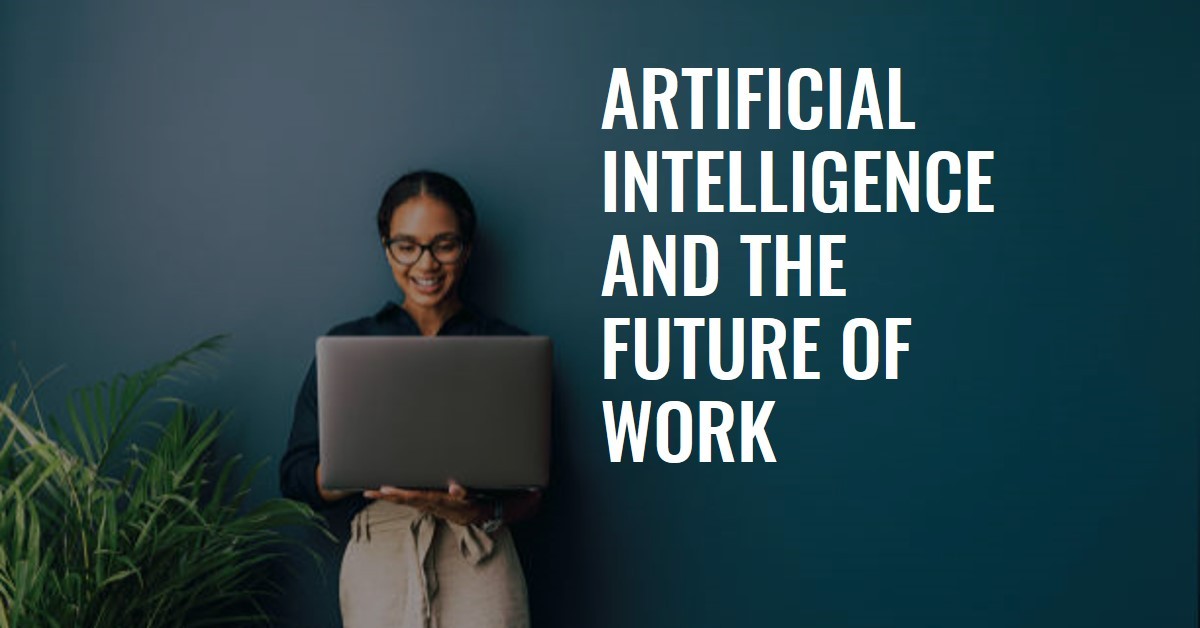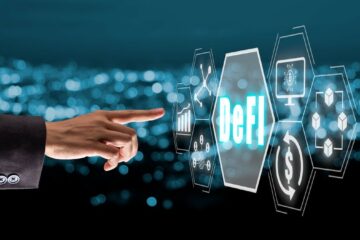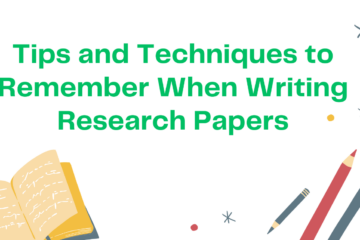AI and The Future of Work

While the impact of Artificial intelligence (AI) on society as a whole is still uncertain, it is clear that it will play a significant role in defining the future of work. As technology continues to advance at an exponential rate, AI has the potential to revolutionize the way we work, live, and interact with one another. AI developments have significantly impacted several industries, such as transportation, healthcare, finance, and manufacturing.
Elevate Your Writing with Our Free Writing Tools!
Did you know that we provide a free essay and speech generator, plagiarism checker, summarizer, paraphraser, and other writing tools for free?
Access Free Writing ToolsMany labor-intensive, repetitive tasks have been replaced by AI and automation, freeing up humans to concentrate on more challenging and innovative work. However, as AI advances, concerns about the future of work and the potential replacement of human workers are raised.
Are you having a hard time trying to complete your assignments, our research and term paper writing service is here to relieve you all the pressure. We understand that most students face challenges while handling their assignments but worry not because Gudwriter offers professional help. We have a pool of experts who will handle your task from scratch and deliver original-quality work on time. We are available online 24/7 and our services are pocket friendly.
Additionally, we have compiled adequate information about different types of AIs such as GPT-4, ChatGPT, and Google Bard. GPT-4 is not far from Google Bard in terms of usability and effectiveness. This article will explore more about AI and the future of work.
How AI and Automation Will Affect the Future Work
Technologies are shaping the future of employment. The new technology is changing organizations and the workplace, creating new opportunities and difficulties for employees and employers. As much as AI and automation positively impacts the job market, there is growing concern about these technologies as they might lead to the displacement of workers. Below are ways in which AI and automation will affect the future of work;
- Employees will lose their jobs
Most workers will lose their jobs, and automation will replace majority of the workers. For instance, studies have found that around 15 percent of the global workplace, or about 400 million workers, might be displaced by automation between 2016 and 2030. This means that most humans will be left jobless. In advanced countries such as Japan, the US, and France, automation could displace 20 to 25% of the workers, while in other countries such as India, the displacement could be twice the rate.
- Some jobs could be automated
The activities that could be automated range from data collection data processing, and other physical activities in highly structured and predictable environments. Studies have shown that almost all workers could be affected, but 5 percent of the jobs will be automated in the near future as of now. This implies that most workers from CEOs to mortgage brokers to welders- will collaborate with the AIs, and as a result, these jobs will probably change. Many workers will lose their jobs to machines.
- Creation of more jobs
As much as workers will be displaced, the need for labor will be higher, leading to more employment. According to McKinsey Global Institute analysis, up to 30% of the world’s workforce (555 million to 890 million jobs) will be needed to meet the increasing labor demand by 2030, more than balancing the number of jobs lost. For instance, the economies of emerging nations like India, where the working-age population is already expanding, will see some of the most significant gains. Additionally, advanced technology is well known as a net job creator. For example, the introduction of the personal computer in the 1970s and 1980s led to the creation of millions of employment information analysts, customer service agents, and a variety of software and app developers, in addition to semiconductor manufacturers.
- Most jobs will be changed than those lost or gained
The prevalence of partial automation will increase as machines replace some human labor. For instance, doctors will be assisted in diagnosing patient problems and choosing the best course of therapy by AI algorithms that can read diagnostic scans with high accuracy.
Key Workforce Transitions and Challenges
The adoption of automation and AI will bring on significant changes. For instance, education, skills, and jobs requirement will change. To ensure that workers and machines work effectively and collaboratively with each other, the nature of work will be redesigned.
Below are some of the key workforce transition brought by the growing automation and AI;
- Most workers will change their occupations
According to McKinsey Global Institute analysis, by 2030, about 30% of the world’s workforce will need to switch occupational categories, and most of the shifts will happen within sectors, companies, and geographies. For instance, managers who perform tasks that are difficult to automate, and plumbers, who work in physically uncertain surroundings, will both experience growth in their respective fields, while teachers, nursing assistants, computer professionals, and other professions will all experience an increase in demand for labor in the future.
- Workers will need different skills to thrive in the workplace of the future
Automation will hasten the change in workforce skills that has already been occurring over the past 15 years. Thus, the demand for highly technical skills like programming will rise rapidly. Also, the need for emotional, social, and cognitive abilities like creativity, critical analysis, and sophisticated information processing will increase. Additionally, the demand for basic digital skills has been rising and will continue to grow. Although the need for physical and manual skills will decrease, they will still make up the majority of workers’ skills in many countries in 2030. Thus, this will increase pressure on the already pressing workforce skills issue and the requirement for new certification systems. Even though some creative solutions are emerging, it will be necessary to find solutions that can handle the scope of the challenge.
- Workflow and workplaces will change
Workflows and workplaces will continue to change as advanced machines and software become more integrated, making it possible for humans and machines to work together. For example, if self-checkout devices are implemented in stores, cashiers can transition into checkout assistance helpers who can assist with inquiries or system troubleshooting. Therefore, the need for more system-level solutions will force a redesign of the entire workspace and flow.
- Automation is likely to put pressure on wages
Automation and AI have the risk of escalating the pay disparity, income inequality, and lack of income advancement that have marked the past ten years in industrialized countries and igniting social and political conflicts.
- Collaborative work
There is a growing demand for workers to collaborate with machines as automation and AI become more prevalent. In addition to learning more about how technology might support human skills, this will necessitate new ways of working and communicating.
Challenges
Challenges to overcome before these technologies can fully realize their potential for the benefit of the global economy and society include;
- There are technical restrictions, such as the necessity for the enormous amount of training data and the difficulty in generalizing algorithms across use cases.
- The use of AI techniques is also a challenge. For example, it can be difficult to explain the choices made by machine learning algorithms, which is essential for use cases requiring loan applications in the legal or financial sectors. Data privacy, malicious use, and security concerns must all be considered, as any potential bias in the training data and algorithms.
How Workers and Businesses Can Prepare for the AI Economy of the Future
As the world is developing, there is a rising concern about AI automation and the future of work; thus, to be ready for these changes, workers and businesses should take action as the world transitions to an AI-powered end. In the current report from the U.S. Chamber’s Commission on Artificial Intelligence Competition, Inclusion, and Innovation, the consequences of AI on employment will be unequal and challenging to predict.
The report stresses that, fundamentally, AI technologies are enhancing and expanding human labor rather than replacing it, and if developed and deployed ethically, AI can empower humans and improve human capabilities. While artificial intelligence has the potential to transform the way we work completely and live, it also poses significant obstacles that must be overcome to ensure a smooth transition. The following are ways how workers and businesses can prepare for the AI economy of the future;
- Educating the future workforce – Workers should be encouraged to start preparing and to continuously improve their skills, knowledge, and talents. This may involve improving skills on how to work alongside advanced machines and also gaining some expertise in fields such as programming, data analysis, and digital marketing.
- Through training and reskilling – Businesses can improve incentives to invest in retraining by developing innovative initiatives that can help facilitate employees’ transitions. Workers also need to have a flexible and agile mind as technology changes.
- Economic Policies – Businesses and workers should urge Congress to adopt tax laws that favor human growth within the business instead of rules that encourage replacing human labor and competence with AI.
- Investing in tools and technologies needed to stay competitive – Businesses must prepare for the AI economy by adopting AI-driven tools, for example, in customer service, process automation, and customer service. Firms must also emphasize data security and privacy to keep their customers’ trust in an AI-powered world.
Sectors AI is likely to have a Strong Impact on
In this AI-driven world, there is growing concern about how AI will impact the future of work and life. However, AI can potentially revolutionize various sectors and industries and how we live, work, and communicate. Even though AI is likely to have an impact on many aspects of the economy, there are a few that have a strong effect which include;
- Medical
The potential advantages of applying AI to medicine are already being researched. A significant amount of data from the medical sector can be used to build healthcare-related predictive models. Additionally, AI has proven more efficient in some diagnostic contexts than doctors. According to Paul et al, Ai will be used to speed up drug discovery and clinical trials, thus reducing the cost of healthcare and the time used to release new drugs.
- Automotive
With the introduction of autonomous vehicles and navigation, we are already witnessing the effects of AI on this field of transportation and autos. AI will have a significant impact on manufacturing as well, especially in the automotive industry. For example, using AIs in buses and trains can improve efficiency and reduce potential risks.
- Cybersecurity
One sector that will have many AI use cases is cybersecurity. Cybersecurity has AI engrained in its DNA because most cyberattacks have an AI-based aspect. To make cybersecurity more dynamic and objective, I anticipate firms will adopt a proactive, continuous, real-time approach to risk management, combining AI and ML with external threat intelligence and internal threat assessments.
- E-Commerce
In the future, AI will be fundamental to every aspect of e-commerce, from user experience to marketing to fulfillment and distribution. Moving forward, we anticipate that AI will continue to be a major force in e-commerce, contributing to chatbots, shopper personalization, image-based targeting advertising, and automated warehousing and inventory systems.
- Manufacturing
AI has already greatly improved the creation and maintenance of industrial and manufacturing organizations. A manufacturer can do predictive maintenance weeks or months before a failure occurs by using AI to identify unexpected indicators and patterns. Before using humans, this was doable, but the resources at hand constrained it. This can be easily scaled to thousands of machines, thanks to AI.
- Finance Services
Institutions in the banking and financial services sector are excellent examples of businesses that profit from AI deployment. Hackers are engaging in a multi-front war while utilizing fraud-fighting technology. Therefore, it is critical for financial institutions to use AI to recognize patterns over vast data sets to detect fraud before it negatively affects their organization and customers.
- Advertising
AI will be a massive help to advertising. The right audience is reached at the right moment is crucial to an advertisement’s effectiveness. The best we could do without AI was to produce different portions. However, AI can make it much more precise. Based on dozens of variables, it can personalize adverts for each person. AI is also capable of determining when and where to broadcast advertisements.
- Enterprise Security
Enterprise security now revolves around identity access management, but identity processes are intricate and require a lot of data. By detecting trends and anomalies, identifying hazardous users, modeling access based on user roles, and automating access requests, AI is already beginning to streamline IAM. This aids businesses in securing permits for their most important assets.
- Media and Entertainment
Massive volumes of data may be obtained or inferred from video using AI in the media and entertainment sector. This could be as basic as metadata for tagging sequences (characters, actors, etc.) or as complex as foretelling the success or failure of upcoming TV and film projects. Expect AI’s influence to grow as streaming data becomes increasingly plentiful.
Benefits of AI at Work
There is a rising concern about AI and the future of work. Moreover, the advantages of artificial intelligence (AI) are quickly becoming apparent and changing how we operate. AI assists companies and organizations in increasing productivity, cutting costs, and improving outcomes by automating mundane processes and enhancing decision-making. Here are some of the main advantages of AI in the workplace:
- Innovation – AI is helping businesses/ organizations to develop and prosper. For example, AI assists in identifying new opportunities and in analyzing and identifying trends and patterns in the marketing industry.
- Solving complex problems – AI may now be used for more sophisticated activities, such as medical diagnosis, thanks to breakthroughs in machine learning, which again frees up resources and boosts productivity.
- Efficiency – Some routine tasks can be completed more quickly and effectively by AI than by humans. Naturally, AI-driven services are available around-the-clock to monitor for fraud, respond to customer inquiries, and scan job applications, saving time and resources compared to human employees.
- Productivity – Without stifling people and resources with routine duties, productivity can soar: According to Ojasvi Nath, 44% of business leaders desire to boost efficiency through automation.
- Personalized experiences– By evaluating data and offering specialized recommendations and solutions, AI may assist organizations in personalizing experiences for both customers and staff.
- Cost Saving – AI can lower organizational costs by automating processes, increasing effectiveness, and requiring less human labor.
Artificial intelligence (AI) plays a crucial role in the rapid transformation of the workplace. While AI poses significant difficulties for employees and businesses, it also offers enormous potential for improved productivity, better judgment, and more customized experiences.
As AI develops, humans will have to acclimate to new jobs and responsibilities that call for expertise in data analysis, machine learning, and software engineering. Employees will also get a chance to hone their uniquely human abilities, like creativity, problem-solving, and communication, which will become increasingly important in a world where routine tasks can be automated. Therefore, by embracing the growing AI-powered economy, workers and businesses see both the advantages and advantages of AI automation and the future.

Special offer! Get 20% discount on your first order. Promo code: SAVE20

